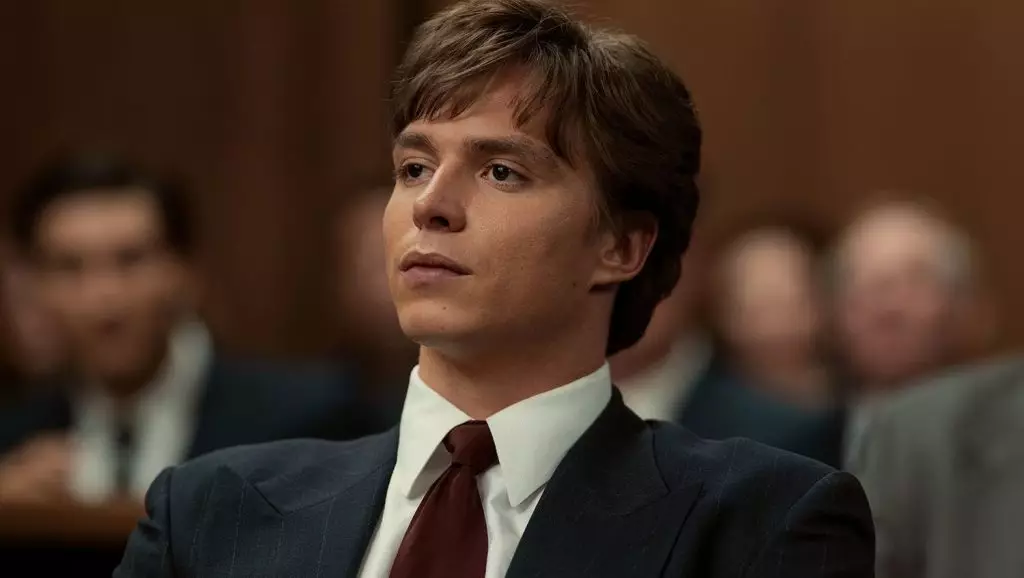In the realm of television where real-life events are often adapted for dramatic narratives, the portrayal of sensitive subjects can ignite fierce discussions. This has been exemplified by Netflix’s acclaimed series “Monsters: The Lyle & Erik Menendez Story,” centered on the infamous case of the Menendez brothers, who were convicted of murdering their parents in 1989. Following the series’ release, reflections from those involved have shed light on the complexities of blending fact with fiction, particularly concerning the emotional pain associated with public representation of personal tragedies.
Nicholas Alexander Chavez, who portrays Lyle Menendez, expressed a nuanced understanding of the fallout from the show’s depiction of these events. In an interview, Chavez articulated his feelings of “sympathy and empathy” for Erik Menendez, who publicly criticized the series for its portrayal of the brothers and their motivations. Through his own introspective remarks, Chavez highlighted the emotional turmoil that comes with witnessing a dramatization of one’s traumatic past displayed for a global audience.
Such empathy is crucial in understanding how individuals cope when their lives become fodder for entertainment. As Chavez noted, the experience of having a personally defining moment—marred by violence and familial dysfunction—exposed on-screen can be profoundly distressing. His acknowledgment of the emotional complexity inherent in such situations reflects a sensitive approach in an industry that often prioritizes sensationalism over compassion.
Erik Menendez’s strong public condemnation of the series speaks volumes about the personal stakes involved in dramatizations of real-life tragedies. His assertion that the series presents a “caricature” of Lyle rooted in “horrible and blatant lies” underlines the delicate balance required when adapting events that have caused profound suffering. Menendez argued that the portrayal perpetuates damaging narratives around male victims of abuse, implying that the series fails to honor the realities of their experiences.
This statement not only critiques the series but also underscores a broader cultural failure to acknowledge male sexual abuse. Menendez’s observations challenge the industry to represent such experiences authentically and responsibly, rather than sensationally. The series, by framing their narrative without sensitivity to these intricacies, risks trivializing the very real issues it attempts to address.
The Showrunner’s Perspective: Ryan Murphy’s Vision
Ryan Murphy, the showrunner behind “Monsters,” responded to Erik’s criticism by asserting that the series aims to present a factual truth about the events surrounding the case. Murphy emphasized that the intention behind the series was to spark dialogue and provide viewers with the agency to form their own opinions about guilt and innocence in the case. His counterpoint—that the series is an invitation to explore the rarely discussed topic of male abuse—highlights the conflicting priorities between creators and the subjects of their narratives.
Murphy’s approach brings to light the inherent tension in adaptations of real-life events, as they must navigate the line between factual representation and artistic interpretation. While he seeks to address critical societal issues, the potential for misunderstanding and backlash remains, especially from those directly affected by the dramatized narratives.
The public debate around “Monsters” raises essential questions about the ethics of storytelling in the context of real-life trauma. As viewers consume these narratives, it becomes imperative to interrogate how stories of suffering can be told in ways that respect the integrity of those involved. The reactions from both Chavez and Menendez serve as crucial reminders that behind the glitz of entertainment lies a complex fabric of human emotions, histories, and ongoing struggles.
Ultimately, while “Monsters: The Lyle & Erik Menendez Story” may attract viewers with its dramatic retelling of a notorious crime, it also invites critical discourse about representation and the cultural narratives we construct around trauma. Conversations spurred by this adaptation may prompt a needed examination of how society understands and discusses male victimhood in contexts where silence has often prevailed, challenging both the creators and consumers of media to engage thoughtfully with the narratives they encounter.

